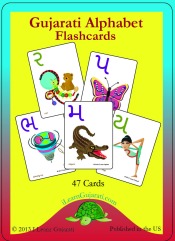Hindi Lesson3 (This is a …..) (That is a ….)
‘This’: as Random House Dictionary explains is used to indicate a person, thing, idea, state, etc present near. “yah” is used for this in Hindi
‘That’ similarly is used to indicate a person, thing, idea, state etc as present remote. “vah” is used for that in Hindi.
This – yah यह
is – hai OR hai^ है OR हैं
Can you guess when we use ‘hai’ versus its nasalized cousin ‘hai^’? Hindi uses nasalization to denote 2 things.
· when the subject that we are talking about is plural
· when we want to show respect toward our subject
Follow the order of Sentence (Subject Other Verb) in the following sentences.
Vocabulary words:
house:ghar girl:laRakii mom:maataajii or mummy table:mez
dad:papa or pitaajii dog: kuttaa friend:dost lesson:paaTh
1. This is a house.
yah ghar hai. यह घर है|
2. This is a girl.
yah laRakii hai. यह लड़की है|
3. This is mom
yah mummy hai^. यह मम्मी हैं|
4. This is dad.
yah papa hai^. यह पापा हैं|
5. This is a table
yah mez hai. यह मेज़ है|
6. This is a chair.
yah kurasii hai. यह कुरसी है|
7. This is a dog.
yah kuttaa hai. यह कुत्ता है|
8. This is a friend.
yah dost hai. यह दोस्त है|
9. This is Anshu.
yah Anshu hai. यह अंशु है|
10. This is a lesson.
yah paTH hai. यह पाठ है|
Find out where I used nasalization in the above sentences? Did you find 2? Surely, when we introduce our parents we need to show respect and hai changes into hai^.
Moving on: That is a …….
That – vah वह
is – hai OR hai^ है OR हैं
Practice speaking all the above 10 sentences with vah instead of yah. The sentence order will stay the same. Go ahead do not hesistate.
This will be it for today. If you like the lesson or would like to see something different, do leave a comment. धन्यवाद
Pronunciation tip: yah is pronounced as “ye” and vah is pronounced as “vo” for all colloquial purposes.

